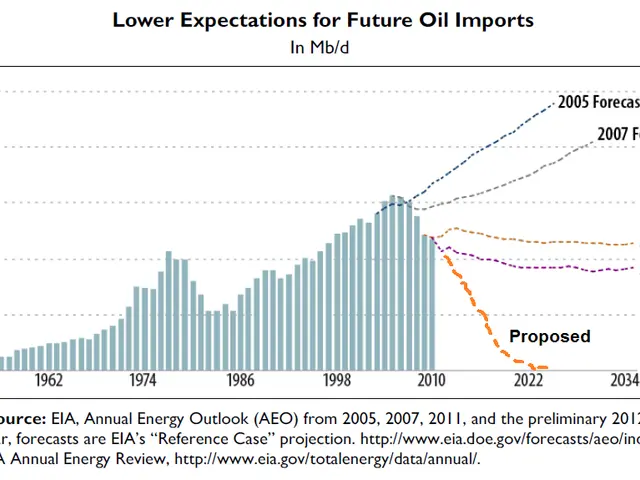Exploring Options for Passive Revenue? These Three Dividend Shares Regularly Distribute Monthly Payments.
Diversifying your financial portfolio by investing in the stock market is an effective method of building long-term wealth. However, with numerous methods to consider, the task of navigating the investment landscape can seem daunting. A strategy that has garnered attention for generating income is dividend investing.
Dividend stocks provide investors with steady, dependable income sources. Moreover, these companies have shown a consistent track record of surpassing non-dividend-producing peers over extended periods.
A comprehensive analysis conducted by Hartford Funds revealed that from 1973 to 2023, dividend-paying stocks delivered an impressive annual return of 9.17%. By contrast, non-dividend payers produced a return of 4.27%. Furthermore, dividend stocks demonstrated less volatility than their competitors, making them an appealing option for investors pursuing stability alongside growth.
Many dividend-providing companies distribute their earnings quarterly. However, for those desiring more frequent paydays, some stocks offer monthly dividends, providing more sustainable cash inflows. If you're contemplating entering the world of dividend investing, consider the following three high-yield stocks that pay out monthly:
Agree Realty: 4.1% dividend yield
Agree Realty (ADC -0.76%) invests in and manages standalone retail properties such as grocery stores, home improvement stores, tire and auto service centers, and dollar stores, among others.
As a real estate investment trust (REIT), Agree Realty is an attractive dividend payer due to its high-quality tenants (nearly 70% have investment-grade ratings). As of the third quarter, 99.6% of its properties were occupied, with a weighted average remaining lease term of 7.9 years.
Some of Agree Realty's primary tenants at the end of the previous year included Walmart, Tractor Supply, Dollar General, Best Buy, and CVS. The company successfully diversifies its customer base, ensuring no single tenant accounts for more than 6.1% of its annualized base rent.
Despite increasing financing costs due to rising interest rates, Agree Realty continued to grow steadily and strengthen its foundation. In 2024, the company invested $524.9 million across 144 properties, which should contribute to its steady rental income for many years.
Agree Realty has a robust balance sheet and employs low leverage compared to its peers. Its payout ratio of 73% of its adjusted funds from operations (FFO) offers investors confidence that it can persistently deliver its monthly dividend.
Realty Income: 5.5% dividend yield
With a 53-year history in the commercial real estate industry, Realty Income (O -0.65%) has consistently demonstrated strong cash flow generation, making it an appealing choice for those seeking dependable returns.
Realty Income boasts an extensive portfolio of more than 15,450 properties in the United States, the United Kingdom, and Spain. With tenants such as Dollar General, 7-Eleven, Walgreens, FedEx, and CVS, investors can be confident in the reliability and financial strength of its clientele and income-generating ability.
At the core of Realty Income's business is its use of triple-net leases, where tenants are responsible for property taxes, maintenance, and insurance, allowing Realty Income to offer lower rents while ensuring a steady cash flow and a dependable income stream for income-focused investors.
While any investment involves risk, Realty Income's focus on retail properties, which account for 91% of its portfolio, is worth considering. The company addresses this risk by diversifying its client base across various industries capable of weathering downturns.
Grocery stores account for 10.2% of its annualized rent, followed by convenience stores (9.4%) and dollar stores (6.6%). Its largest tenant, Dollar General, contributes only 3.4% of its annual rent, reducing its reliance on any single client.
Realty Income offers an enticing blend of stability and growth potential with its well-diversified, resilient portfolio designed to generate consistent income for years to come.
Stag Industrial: 3.9% dividend yield
Stag Industrial (STAG -0.83%) excels in the burgeoning industry of U.S. industrial properties. The company has built a portfolio of buildings in 41 states, predominantly warehouses and distribution centers.
Catering to the flourishing industrial sector, Stag possesses a diverse tenant base, with Amazon leading the pack, accounting for 3% of its annual base rental revenue. Other primary tenants include Soho Studio, Eastern Metal Supply, American Tire Distributors, and Tempur Sealy International.
Since its public debut in 2011, Stag has expanded its property holdings from 93 buildings to 573, establishing itself as a key player in the U.S. industrial property market. Its strategic emphasis on warehousing and distribution centers has positioned the company at the forefront of the rapidly expanding industry, ensuring continued success.
Stag is well-prepared to capitalize on promising long-term trends. A recent report from Grand View Research predicts that the global warehousing and distribution market will grow at a compound annual rate of 8% through 2030.
Since its public offering, Stag Industrial has proven to be a solid investment choice, providing substantial growth. It has a rational payout ratio of 60% of FFO and is well-equipped to continue delivering for investors.
Investing in dividend-paying stocks like Agree Realty, Realty Income, and Stag Industrial can contribute to a diverse finance portfolio, as they provide a steady income source. According to Hartford Funds' analysis, dividend-paying stocks delivered an annual return of 9.17% from 1973 to 2023, outperforming non-dividend payers with a 4.27% return.








